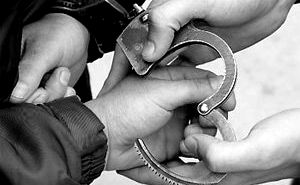
From 2008 to 2010, the number of immigrants from Georgia “implicated” in cases investigated by the French police or gendarmerie alone grew by 33 percent. In 2010 in France, according to police calculations, they already numbered 1,650 people, mostly belonging to two major clans: the “Kutaisi”, and the group of Usoyan. This forced law enforcement agencies in the EU to intensify their fight against Georgian organized crime groups. For example, in 2010 a joint police operation called “Java” was conducted in France, Italy, Germany, Austria, Switzerland and Spain, and 80 members of the Georgian underworld were detained. In November 2011, another specialized police operation targeting the Georgian mafia was held in the Southern Pyrenees. Codenamed “Caucasus”, it resulted in 20 arrests. July 2012 saw the arrest of another 21 Georgian organized crime figures in Limoges and Paris; over the last year they had committed more than 200 robberies in 20 different departments of France. In the course of the latter operation alone, more than a thousand pieces of evidence were confiscated, including 800 items of precious metals, and computer, video and sound recording equipment. The stolen jewels were transported for sale in Belgium, while the other objects (such as computers, electronic equipment, and clothing) were sent to the Caucasus in containers. In May of this year, French police held another special operation in Paris, Lyon and Nice, arresting more than 40 people involved in the Georgian mafia.
Shortly after the murder at the beginning of this year of Georgian crime boss Aslan Usoyan, gangsters had the audacity to order a special charter flight to the United Arab Emirates for a “gathering of Georgian ‘thieves-in-law’” there.
Currently, the Central Service of the Judicial Police in France says with confidence that members of organized crime groups from Georgia are entrenched in the top-10 cities in the country, the largest of which are in Paris, Marseille, Lyon, Rennes, Clermont-Ferrand and, of course, Nice. At present more than 200 people from Georgia are imprisoned in France and about another 2,000 names of alleged Georgian mafia members are in the files of the French police and gendarmerie.
As representatives of European law-enforcement agencies note, the organizational structure of Georgian OCGs is distinguished by a rigid hierarchy. At the head of such a group is a leader who rarely appears in public and, in turn, reports to a “godfather”, who operates on an international level. The power of the leader is largely dependent on his ability to subordinate independent groups of thieves under his authority. His underlings oversee the activities of smaller Georgian criminal gangs. The pyramid is cemented by the payment of tributes to the leader of each group acting in the region. This is the so-called “common fund”. Payments amount to 20 percent of takings.
As the French police investigation showed, significant resources of this “common fund” recently began to flow to investors putting money into the construction of Olympic facilities. Europol estimates the “common fund” at a one billion euros! In June of this year, the Italian publication “Il Fatto Quotidiano” conducted its own journalistic investigation into the activities in Italy of the Georgian mafia engaged in political corruption, extortion, drug trafficking and arms trafficking. According to the Italian magazine, the heads of Georgian mafia clans are linked to British firms and are involved in the preparation of the Winter Olympics in Sochi. The brother of Merab Dzhangveladze (leader of one of the “Kutaisi” OCGs present in Italy) is a prominent diplomat and influential Georgian tycoon. This, concluded the Italian magazine, is a clear illustration of the close links between mafia, business and politics in Georgia.
It is very sad that Georgia, a country of beautiful and rich culture and unique and outstanding artists, has become in recent years widely known outside its borders because of the armed aggression in August 2008 against South Ossetia and Abkhazia, which was unleashed by political adventurist and war criminal Mikheil Saakashvili, as well as because of the activities of the Georgian criminal gangs, the peak of whose activity also came during the “reign” of Saakashvili.
Vladimir Odintsov, political analyst, exclusively for the online magazine “New Eastern Outlook”.
